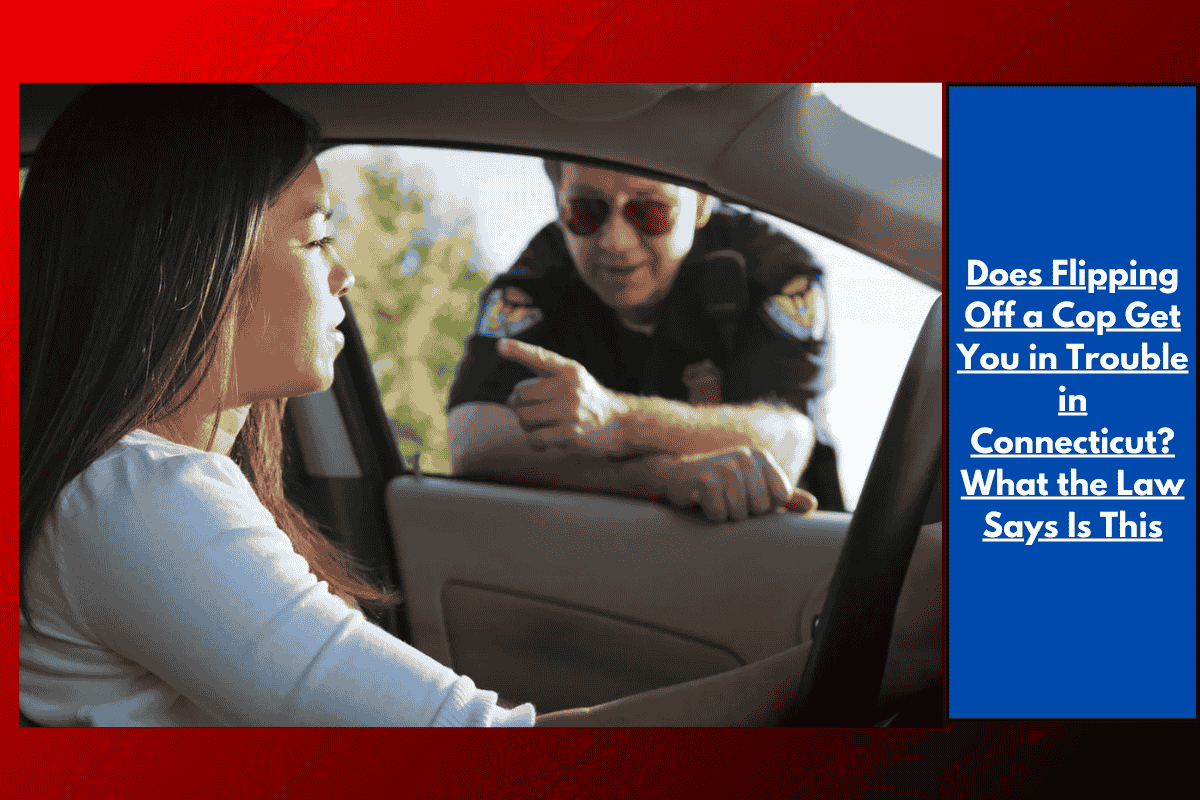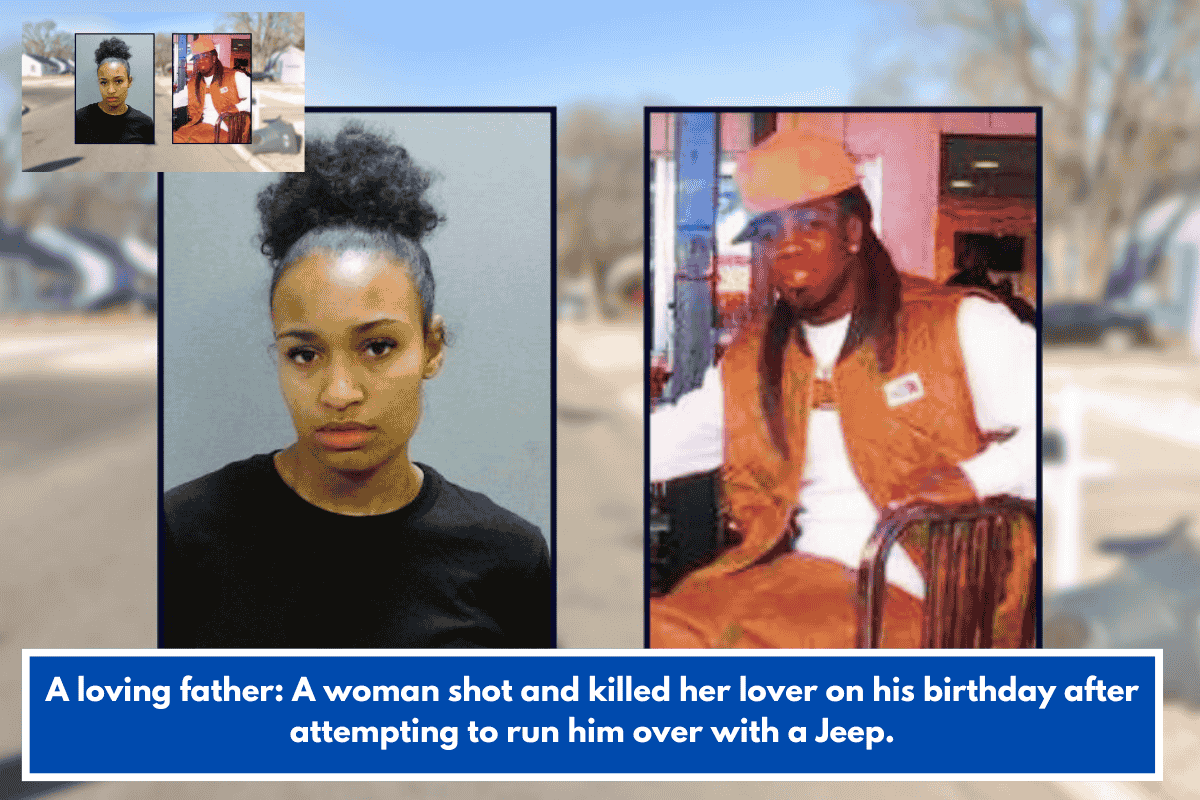Flipping off a cop, or giving the middle finger, is often considered an act of disrespect or frustration. But can it actually get you into legal trouble? In Connecticut, like many other states, laws about free speech, including offensive gestures like flipping off a police officer, are nuanced. Here’s what you need to know about whether flipping off a cop in Connecticut could lead to trouble.
Free Speech vs. Disorderly Conduct
Under the First Amendment of the U.S. Constitution, individuals have the right to free speech, which includes making offensive gestures like flipping off a police officer. However, this right isn’t unlimited, and certain actions can cross the line into illegal behavior, especially if they result in a public disturbance or interfere with law enforcement duties.
In Connecticut, flipping off a cop may not automatically lead to legal trouble, but depending on the situation, it could be interpreted as disorderly conduct or disturbing the peace.
Disorderly Conduct and Public Disturbance Laws
In Connecticut, disorderly conduct is defined as any behavior that is intended to cause inconvenience, annoyance, or alarm to others, or behavior that disrupts public peace. Under Connecticut General Statutes Section 53a-182, actions such as fighting, making unreasonable noise, or creating a hazardous situation can be considered disorderly conduct.
While flipping off a cop by itself isn’t likely to result in criminal charges, if the gesture escalates into a confrontation, loud arguments, or a disruptive incident, it could lead to disorderly conduct charges. For example, if you shout at the officer or block traffic after giving them the middle finger, you could be charged with disturbing the peace or engaging in disorderly conduct.
Context Matters
The context and manner in which you flip off the officer matter significantly. If it’s a simple, isolated gesture and doesn’t provoke a confrontation or escalate the situation, it’s unlikely to result in legal trouble. However, if the situation involves aggression, creates a public disturbance, or interferes with police duties, you could face legal consequences.
Escalation: If flipping off the cop leads to an argument or causes the officer to stop and engage with you, it could result in a more serious interaction that might lead to charges.
Interfering with Police Duties: If the gesture distracts or interferes with an officer’s ability to carry out their duties—such as during a traffic stop or arrest—it could be considered obstruction or resisting arrest, which are serious offenses.
The Right to Free Expression
While the First Amendment protects your right to free expression, including making offensive gestures, it’s important to remember that intent and context matter. Simply flipping off an officer without further action is not likely to get you in trouble, but if the act leads to escalation or disrupts law enforcement operations, you could face consequences.
Can Flipping Off a Cop Lead to Criminal Charges in Connecticut?
In most cases, no, flipping off a cop alone is not a criminal offense in Connecticut. However, if the gesture leads to further disruptive behavior, such as arguing with the officer, refusing to comply with lawful orders, or obstructing justice, it could result in charges like:
Disorderly Conduct: A charge for engaging in disruptive or alarming behavior in public.
Resisting Arrest: If the interaction escalates and the officer attempts to detain you, resisting arrest could become an issue.
Interfering with Police: If your actions interfere with an officer’s ability to perform their duties, you could be charged with obstructing justice.
What Should You Do If You’re Interacting with a Police Officer?
If you’re pulled over or interacting with an officer, it’s always a good idea to remain calm, respectful, and cooperative. While it is your right to express yourself, maintaining a respectful demeanor can help avoid escalating the situation.
Keep Your Distance: Stay in your vehicle and avoid any aggressive movements.
Stay Calm: If you feel frustrated or upset, take a deep breath and resist making any gestures or remarks that could escalate the situation.
Know Your Rights: If you feel your rights are being violated or you’re being treated unfairly, it’s okay to assert your rights. However, do so calmly and respectfully, without aggression or insults.
Flipping off a cop in Connecticut may not automatically lead to legal trouble, but it could escalate into a more serious situation depending on the circumstances. If the gesture leads to further disruption, interference with police duties, or public disturbance, you could face charges such as disorderly conduct or obstruction. It’s always best to remain calm and respectful in any interaction with law enforcement to avoid unnecessary legal issues.
SOURCES
[1] https://www.marcushillattorney.com/links/flipping-off-the-cops.shtml
[2] https://www.wirthlawoffice.com/tulsa-attorney-blog/2021/04/can-i-legally-flip-off-the-police
[3] https://www.shubinlaw.com/flipping-off-police-officers-constitutional-federal-court-affirms/
[4] https://www.avvo.com/legal-answers/is-it-illegal-to-flip-a-police-officer-off–5324427.html
[5] https://ctmirror.org/2024/03/06/ct-police-ticket-scandal-fake-records-bill/














